- Home›
- Healthy Living›
- 10 Must-Eat Foods To Stay Healthy During The Monsoon Season
10 Must-Eat Foods To Stay Healthy During The Monsoon Season
By: Priyanka Maheshwari Sat, 01 July 2023 00:42:06

The monsoon season brings relief from the sweltering heat of summer, but it also brings its own set of health challenges. The increased humidity and moisture in the air create an ideal breeding ground for bacteria, viruses, and insects, leading to various health issues. However, with some precautionary measures and healthy habits, you can navigate through the monsoon season while staying healthy and enjoying the beauty of nature. To maintain good health during this season, it is essential to focus on a nutritious diet that supports our immune system and keeps us energized. In this article, we will discuss 10 must-eat foods that can help you stay healthy and enjoy the monsoon season to the fullest.

# Seasonal Fruits
During the monsoon season, several delicious and nutritious fruits come into season, offering a variety of flavors and health benefits. Here are some popular seasonal fruits to enjoy during the monsoon season:
Mangoes: Known as the "king of fruits," mangoes are a favorite during the monsoon season. They are rich in vitamins A and C, fiber, and antioxidants. Enjoy them as a juicy snack or use them in smoothies, salads, or desserts.
Litchis: Litchis are small, juicy fruits with a sweet and slightly tart flavor. They are packed with vitamin C, fiber, and antioxidants. Enjoy them fresh or add them to fruit salads or desserts.
Jamun: Also known as Indian blackberry, jamun is a purple-colored fruit with a unique tangy flavor. It is a rich source of vitamins A and C, iron, and antioxidants. Eat them as a snack or use them in jams, jellies, or desserts.
Watermelon: Watermelon is a hydrating fruit that is perfect for the monsoon season. It is rich in water content, vitamins A and C, and antioxidants. Enjoy chilled watermelon slices or make refreshing watermelon juice.
Plums: Plums are small, juicy fruits with a sweet and slightly tart taste. They are packed with vitamins A and C, fiber, and antioxidants. Enjoy them as a snack or use them in salads, desserts, or jams.
Cherries: Cherries are small, sweet fruits that are rich in antioxidants and vitamins A and C. They can be eaten fresh or used in desserts, smoothies, or salads.
Pears: Pears are juicy fruits that are high in fiber, vitamins C and K, and antioxidants. They are a refreshing snack and can be added to salads or used in desserts.
Papayas: Papayas are tropical fruits that are available throughout the year, but they are particularly abundant during the monsoon season. They are rich in vitamins A and C, fiber, and enzymes that aid digestion.
Pomegranates: Pomegranates are packed with antioxidants, vitamins C and K, and fiber. They have a sweet and tangy flavor and can be enjoyed as a snack or added to salads, desserts, or juices.
Bananas: Bananas are available year-round and are a great source of potassium, vitamins B6 and C, and fiber. They make a convenient and healthy snack option during the monsoon season.
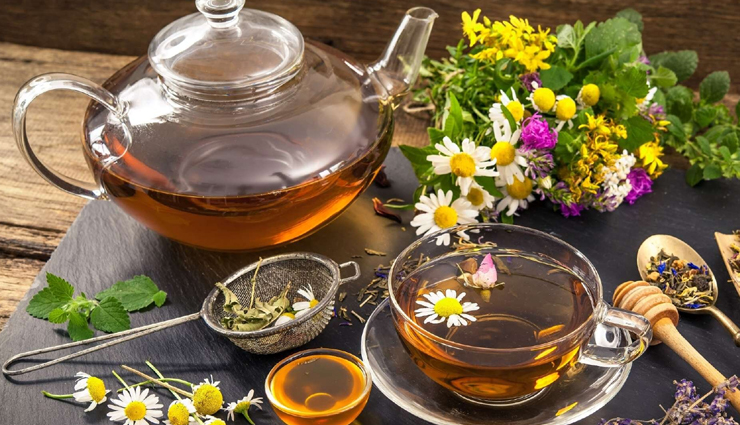
# Herbal Teas
During the monsoon season, herbal teas can be a comforting and healthy choice to warm up and boost your well-being. Here are some popular herbal teas to enjoy during the rainy season:
Ginger Tea: Ginger tea is known for its warming properties and ability to aid digestion. It can help soothe an upset stomach and relieve nausea, which are common during the monsoon season.
Tulsi (Holy Basil) Tea: Tulsi tea is a popular herbal tea in India and is revered for its medicinal properties. It is known to boost immunity, relieve respiratory issues, and promote overall well-being.
Peppermint Tea: Peppermint tea has a refreshing and cooling effect, making it ideal for hot and humid monsoon days. It can help soothe digestion, relieve headaches, and promote relaxation.
Chamomile Tea: Chamomile tea is well-known for its calming properties. It can help alleviate stress, promote better sleep, and soothe digestive discomfort, making it a great choice for a cozy evening during the monsoon season.
Lemongrass Tea: Lemongrass tea has a citrusy and refreshing flavor. It is known for its calming and detoxifying effects, promoting digestion, and providing relief from bloating and indigestion.
Cinnamon Tea: Cinnamon tea is a warming and aromatic herbal beverage. It can help improve circulation, support digestion, and provide a comforting feeling on rainy days.
Cardamom Tea: Cardamom tea is a flavorful and aromatic herbal tea. It aids digestion, freshens breath, and adds a pleasant flavor to your tea experience.
Ashwagandha Tea: Ashwagandha tea is made from the roots of the ashwagandha plant and is known for its adaptogenic properties. It helps reduce stress, promote relaxation, and support overall well-being.
Nettle Tea: Nettle tea is rich in nutrients and is known for its detoxifying and anti-inflammatory properties. It can help cleanse the body, support healthy skin, and boost immunity.
Hibiscus Tea: Hibiscus tea is a vibrant and tangy herbal tea that is rich in antioxidants. It can help lower blood pressure, boost metabolism, and support cardiovascular health.
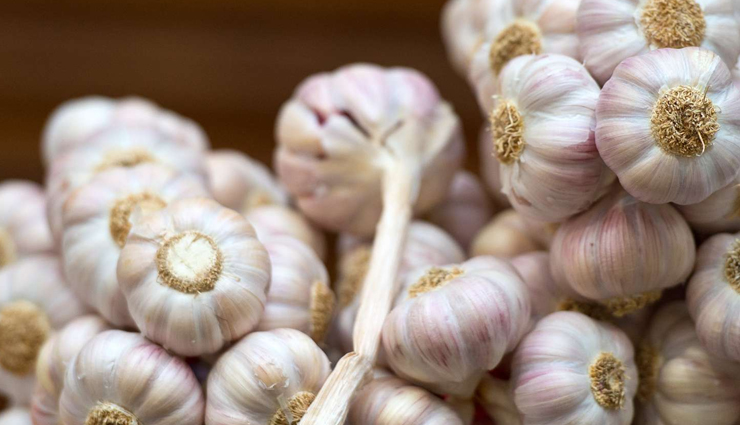
# Garlic
Garlic is a versatile ingredient that is commonly used in cooking due to its distinct flavor and potential health benefits. Here are some points to consider regarding the consumption of garlic during the monsoon season:
Boosts Immunity: Garlic is known for its immune-boosting properties. It contains compounds like allicin, which have antimicrobial and antioxidant effects. Consuming garlic during the monsoon season can help strengthen your immune system and protect against common illnesses.
Fights Infections: Garlic has natural antibacterial and antiviral properties, which can be beneficial during the monsoon season when the risk of infections is higher. It may help combat respiratory infections, colds, and coughs.
Enhances Digestion: Garlic can aid digestion by stimulating the production of digestive enzymes. It may help relieve digestive discomfort, bloating, and gas, which are common during the monsoon season.
Repels Insects: The pungent odor of garlic is believed to repel insects, including mosquitoes. Adding garlic to your diet during the monsoon season may provide some protection against mosquito bites and related diseases.
Anti-inflammatory Effects: Garlic contains compounds that have anti-inflammatory properties. Inflammation can be a common concern during the monsoon season, especially due to allergies and infections. Consuming garlic may help reduce inflammation and associated symptoms.
Heart Health Benefits: Garlic is associated with various heart health benefits. It may help lower blood pressure, reduce cholesterol levels, and improve overall cardiovascular health. These effects can be beneficial during the monsoon season when heart-related concerns may arise.
Considerations: While garlic offers potential health benefits, it is important to note that excessive consumption may have certain side effects, such as digestive discomfort and an unpleasant body odor. Additionally, if you have any specific health conditions or are taking certain medications, it is advisable to consult with a healthcare professional before significantly increasing your garlic intake.
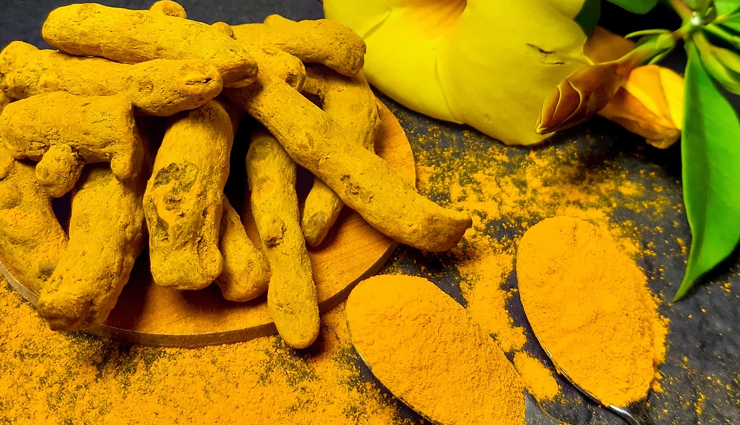
# Turmeric
Turmeric is a vibrant yellow spice that is widely used in Indian cuisine and is known for its numerous health benefits. Here are some points to consider regarding the consumption of turmeric during the monsoon season:
Boosts Immunity: Turmeric contains a compound called curcumin, which has powerful antioxidant and anti-inflammatory properties. Consuming turmeric during the monsoon season can help strengthen your immune system and protect against seasonal illnesses.
Anti-inflammatory Effects: The monsoon season can sometimes bring about an increase in inflammation-related concerns, such as allergies and joint pain. Turmeric's anti-inflammatory properties can help alleviate these symptoms and promote overall well-being.
Digestive Health: Turmeric has long been used in traditional medicine for its digestive benefits. It can help stimulate the production of digestive enzymes, improve digestion, and alleviate digestive discomfort that may be more common during the monsoon season.
Supports Skin Health: Turmeric is known for its positive effects on skin health. It has antioxidant properties that help combat free radicals, which can damage the skin. Consuming turmeric during the monsoon season may help maintain healthy and glowing skin.
Seasonal Allergies: Many people experience allergies during the monsoon season, and turmeric may offer relief. Its anti-inflammatory and antihistamine properties can help alleviate symptoms like sneezing, itching, and congestion.
Antimicrobial Properties: Turmeric has natural antimicrobial properties, which can help protect against bacterial and fungal infections. This can be particularly beneficial during the monsoon season when there is a higher risk of infections.

# Yogurt
Yogurt, also known as curd or dahi, is a popular dairy product with several health benefits. Here are some points to consider regarding the consumption of yogurt during the monsoon season:
Probiotics for Gut Health: Yogurt is a rich source of beneficial bacteria known as probiotics. These probiotics help maintain a healthy balance of gut flora, which is essential for proper digestion and a strong immune system. Consuming yogurt during the monsoon season can support overall gut health and reduce the risk of digestive issues.
Boosts Immunity: Yogurt contains immune-boosting properties due to its probiotic content. A strong immune system is crucial during the monsoon season when there is an increased risk of infections and seasonal illnesses. Including yogurt in your diet can help strengthen your immune response and improve your body's defense mechanisms.
Cooling and Hydrating: Yogurt has a cooling effect on the body and can help combat the heat and humidity associated with the monsoon season. It also has a high water content, which can contribute to your overall hydration levels. Consuming yogurt can help keep you cool and refreshed during this time.
Nutrient-Rich: Yogurt is a good source of various nutrients, including calcium, protein, vitamin B12, and phosphorus. These nutrients are essential for maintaining strong bones, supporting muscle growth, and promoting overall health and well-being.
Digestive Aid: The monsoon season can sometimes lead to digestive issues such as bloating, indigestion, and diarrhea. Yogurt's probiotic content can help regulate digestion, reduce inflammation in the gut, and alleviate symptoms of digestive discomfort.
Versatile and Easy to Include in Meals: Yogurt is a versatile ingredient that can be included in various dishes. You can enjoy it as a standalone snack, blend it into smoothies, use it as a base for dressings and dips, or incorporate it into savory dishes like curries and raita. Its versatility makes it easy to include yogurt in your daily diet.
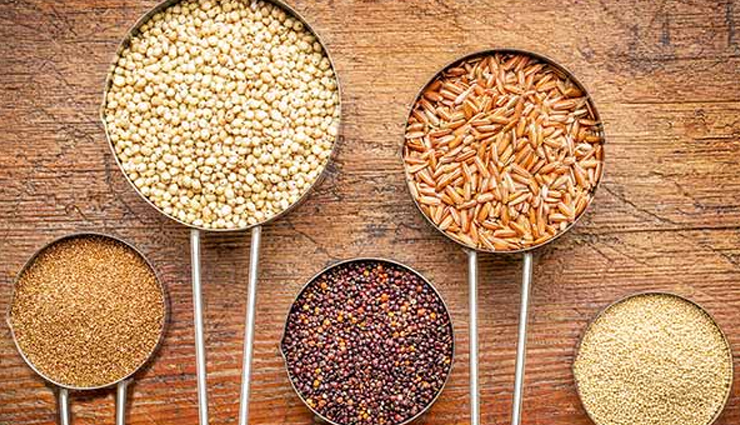
# Whole Grains
Including whole grains in your diet during the monsoon season can be a healthy choice. Here are some points to consider regarding the consumption of whole grains during this time:
Nutritional Value: Whole grains are rich in essential nutrients such as fiber, vitamins, minerals, and antioxidants. They provide important nutrients like B vitamins, iron, magnesium, and zinc, which are beneficial for overall health.
Fiber-Rich: Whole grains are excellent sources of dietary fiber, which is important for maintaining digestive health and regulating bowel movements. Fiber helps prevent constipation and keeps you feeling fuller for longer, which can aid in managing weight and controlling cravings.
Boosts Energy: Whole grains provide a steady release of energy due to their complex carbohydrate content. Including whole grains in your meals can help sustain energy levels throughout the day, keeping you active and productive.
Immunity Support: Whole grains contain various immune-boosting nutrients, including antioxidants and phytochemicals. A strong immune system is essential during the monsoon season when there is an increased risk of infections. Whole grains can contribute to a healthy immune response and support your body's defense mechanisms.
Digestive Health: The high fiber content in whole grains promotes healthy digestion and can prevent digestive issues such as bloating and constipation. It supports a healthy gut microbiome, which is important for overall digestive well-being.
Variety of Options: Whole grains come in various forms, including brown rice, whole wheat, oats, quinoa, barley, and millets. This variety allows you to explore different flavors and textures, keeping your meals interesting and diverse.
Versatile Ingredient: Whole grains can be incorporated into a wide range of dishes, including salads, soups, stir-fries, pilafs, and baked goods. They add texture, flavor, and nutritional value to your meals, making them satisfying and wholesome.

# Soups and Stews
Soups and stews are perfect comfort foods during the monsoon season. Here are some reasons why they are a great choice:
Warmth and Comfort: Monsoon brings cooler temperatures and rainy days, making it the perfect time to enjoy warm and comforting meals. Soups and stews provide the much-needed warmth and coziness during this time.
Hydration: Soups and stews are often broth-based, which means they have high water content. This helps keep you hydrated, especially during the rainy season when you may not feel as thirsty. Staying hydrated is essential for overall health and well-being.
Nutrient-Rich: Soups and stews can be packed with a variety of vegetables, legumes, and lean proteins, making them highly nutritious. They provide a good balance of vitamins, minerals, and antioxidants that support your immune system and overall health.
Digestive Ease: The warm and liquid nature of soups and stews can help soothe the digestive system. They are easier to digest and can provide relief if you experience any digestive discomfort during the monsoon season.
Immune-Boosting Ingredients: By incorporating immune-boosting ingredients like garlic, ginger, turmeric, and herbs, soups and stews can help strengthen your immune system. These ingredients have antimicrobial and anti-inflammatory properties that can help protect against infections and support your body's defense mechanisms.
Versatility: Soups and stews offer endless possibilities in terms of flavors and ingredients. You can create a wide variety of soups and stews using different vegetables, proteins, herbs, and spices, allowing you to explore different tastes and textures.
Easy to Prepare: Soups and stews are relatively easy to prepare and can be made in large batches, making them suitable for meal prepping. You can cook a big pot of soup or stew and enjoy it over several days, saving time and effort in the kitchen.
Nourishing and Satisfying: Soups and stews are not only nutritious but also satisfying. The combination of flavors, textures, and aromas makes them a fulfilling meal option. They can keep you satiated for longer, preventing unnecessary snacking or overeating.
Comforting for the Soul: The act of savoring a warm bowl of soup or stew on a rainy day can provide a sense of comfort and relaxation. It can uplift your mood and create a cozy ambiance, helping you unwind and enjoy the moment.
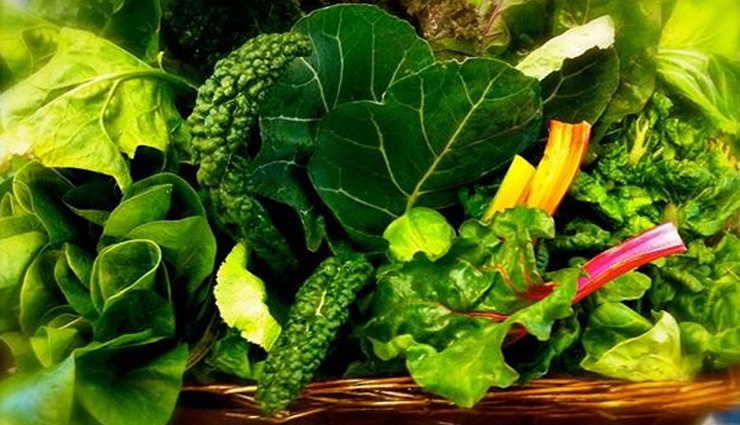
# Green Leafy Vegetables
Green leafy vegetables are highly beneficial and recommended to include in your diet during the monsoon season. Here's why you should include them in your diet:
Nutrient-Rich: Green leafy vegetables such as spinach, kale, fenugreek leaves, and amaranth are packed with essential vitamins, minerals, and antioxidants. They are a great source of vitamins A, C, and K, as well as folate, iron, and calcium. These nutrients help support overall health and strengthen the immune system.
Boost Immunity: The monsoon season is often accompanied by an increase in viral infections and waterborne diseases. Green leafy vegetables contain immune-boosting properties that can help protect against illnesses. They are rich in antioxidants that combat free radicals and strengthen the body's defense mechanisms.
Hydration: Many green leafy vegetables have high water content, which helps in maintaining hydration levels during the humid monsoon season. Staying hydrated is essential for healthy skin, proper digestion, and overall well-being.
Digestive Health: Green leafy vegetables are a good source of dietary fiber, which aids in digestion and prevents constipation. They also contain phytonutrients that support a healthy gut and promote the growth of beneficial gut bacteria.
Detoxification: Green leafy vegetables are known for their detoxifying properties. They help in flushing out toxins from the body and support liver function, which is crucial for eliminating waste and maintaining optimal health.
Weight Management: Green leafy vegetables are low in calories and high in fiber, making them an excellent choice for weight management. They provide satiety, preventing overeating and promoting a healthy weight.
Skin and Hair Health: The vitamins and antioxidants present in green leafy vegetables contribute to healthy skin and hair. They help in maintaining a youthful complexion, reducing inflammation, and promoting hair growth.
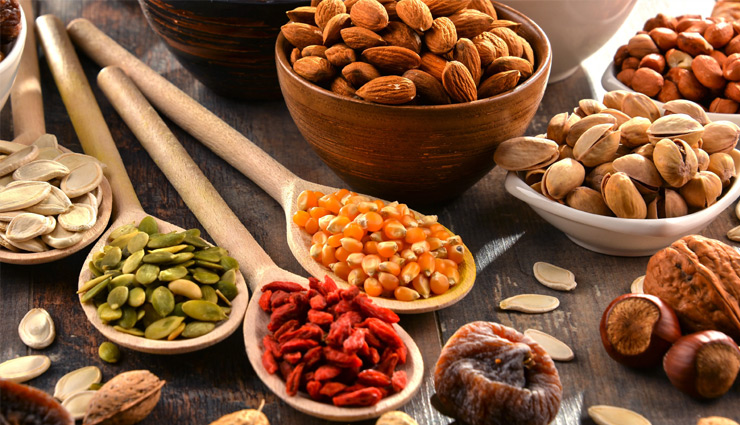
# Nuts and Seeds
Nuts and seeds are nutritious and versatile foods that can be enjoyed during the monsoon season. Here's why you should include them in your diet:
Nutrient-Rich: Nuts and seeds are packed with essential nutrients such as healthy fats, protein, fiber, vitamins, and minerals. They provide a wide range of nutrients like omega-3 fatty acids, vitamin E, magnesium, zinc, and antioxidants, which are beneficial for overall health.
Boost Energy: Nuts and seeds are a great source of energy due to their high content of healthy fats and protein. They can provide a sustained release of energy, making them an ideal snack during the monsoon season when you may need an energy boost.
Good for Heart Health: Many nuts, such as almonds and walnuts, are rich in heart-healthy fats, including monounsaturated and polyunsaturated fats. These fats help lower bad cholesterol levels and reduce the risk of heart disease.
Immune Support: Nuts and seeds contain various nutrients that support immune function, including vitamin E, zinc, and antioxidants. A strong immune system is crucial during the monsoon season to protect against infections and illnesses.
Healthy Snacking Option: Nuts and seeds make for convenient and healthy snacks during the monsoon season. They are portable, require no preparation, and can be easily carried with you. Snacking on nuts and seeds can help curb cravings and keep you satisfied between meals.
Nutritional Variety: There is a wide variety of nuts and seeds available, each offering its unique nutritional profile. From almonds and cashews to pumpkin seeds and flaxseeds, you can choose different options to add variety to your diet and obtain a range of nutrients.
Fiber-Rich: Nuts and seeds are a good source of dietary fiber, which promotes healthy digestion and helps prevent constipation. Adequate fiber intake is essential for maintaining a healthy gut and supporting overall digestive health.
Antioxidant Power: Many nuts and seeds are rich in antioxidants, which help protect the body against oxidative stress and inflammation. Antioxidants play a vital role in maintaining overall health and reducing the risk of chronic diseases.
Skin and Hair Health: The vitamins, minerals, and healthy fats present in nuts and seeds contribute to healthy skin and hair. They provide nourishment and hydration to the skin, promote a youthful complexion, and support hair growth and strength.

# Citrus Fruits
Citrus fruits are a delightful addition to your diet during the monsoon season. Here are some reasons why you should include them:
Immune Boosting: Citrus fruits like oranges, lemons, and grapefruits are rich in vitamin C, which is known to strengthen the immune system. A robust immune system is essential during the monsoon season to protect against common infections and illnesses.
Hydration: Citrus fruits have high water content, making them a refreshing and hydrating choice during humid monsoon weather. Staying adequately hydrated is crucial for maintaining overall health and supporting proper bodily functions.
Antioxidant Power: Citrus fruits are packed with antioxidants such as vitamin C, flavonoids, and beta-carotene. These antioxidants help neutralize harmful free radicals in the body, reducing oxidative stress and inflammation.
Digestive Health: Citrus fruits contain dietary fiber, which aids digestion and promotes regular bowel movements. Fiber also helps prevent constipation and keeps your gut healthy.
Skin Health: The vitamin C content in citrus fruits plays a vital role in collagen synthesis, which contributes to healthy skin. Vitamin C also has antioxidant properties that help protect the skin against damage from free radicals and promote a radiant complexion.
Weight Management: Citrus fruits are low in calories and high in fiber, making them a suitable choice for weight management. The fiber content helps you feel fuller for longer, reducing the chances of overeating.
Nutrient Rich: Citrus fruits provide a wide array of essential vitamins and minerals, including vitamin C, vitamin A, potassium, folate, and calcium. These nutrients support overall health and contribute to various bodily functions.
Mood Enhancement: Citrus fruits have a refreshing and invigorating aroma, which can uplift your mood and reduce stress. The scent of citrus fruits is often associated with relaxation and positive emotions.





